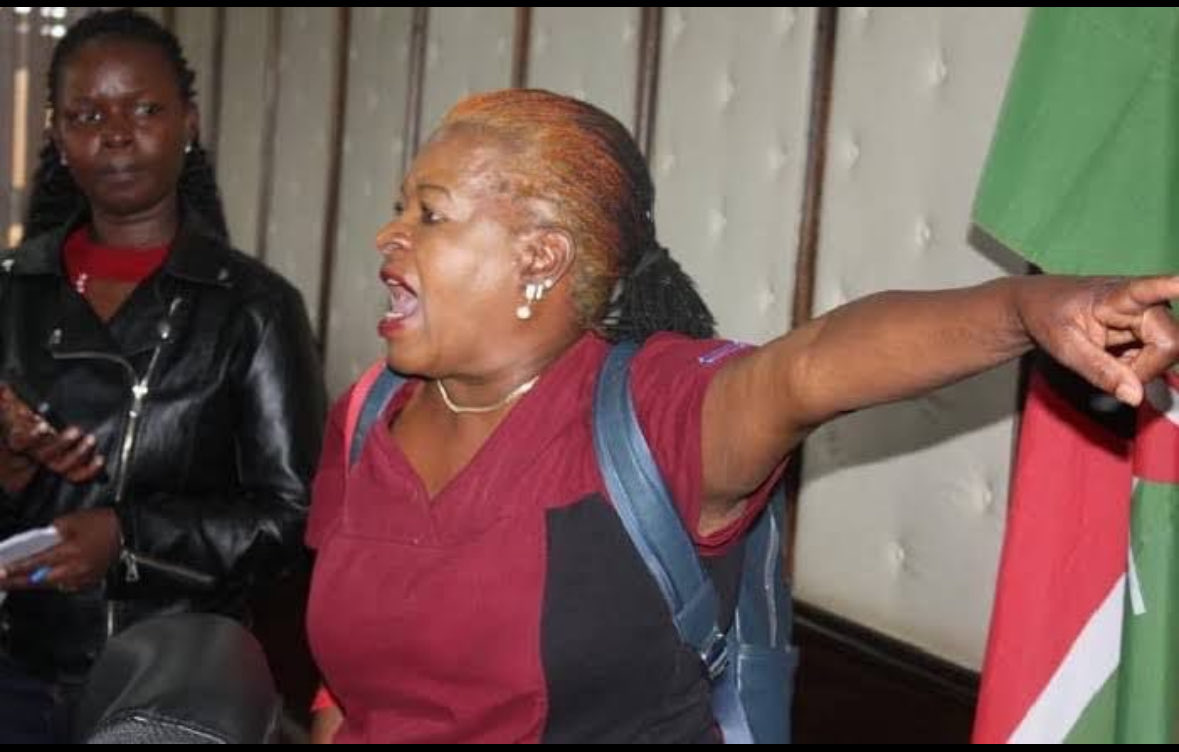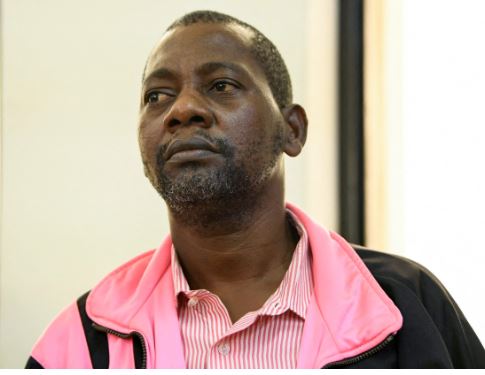Gender Commission condemns violation of Grace Njoki's rights during arrest at hospital

The arrest happened at Ladnan Hospital in Eastleigh, where she had gone to seek medical treatment. She was forcibly removed from the hospital on claims of causing a disturbance on January 15.
The actions taken against Grace Njoki Mulei were a violation of her rights to expression, picketing, and access to quality healthcare, the National Gender and Equality Commission (NGEC) has stated.
The 61-year-old was arrested and detained following her protest at the Ministry of Health a week ago.
More To Read
- SHA transition sparks tension as teachers cite lack of consultation, legal violations
- Review meeting highlights barriers to immunisation, maternal health in Turkana
- Court of Appeal postpones hearing on constitutionality of Health Acts
- 1,567 injured police officers compensated, says Mwangangi as Senate pushes for transparency
- SHA announces refund process for mistaken M-Pesa premium payments
- Governors sound alarm as 934 newborns die amid funding row in health sector
The arrest happened at Ladnan Hospital in Eastleigh, where she had gone to seek medical treatment. She was forcibly removed from the hospital on claims of causing a disturbance on January 15, after she and another patient protested against delayed access to healthcare.
The delays had been caused by a system failure within the Social Health Authority (SHA), for which the Ministry later took responsibility and issued an apology.
“Ms Njoki's arrest, detention, and the manner in which it was carried out constitute a blatant violation of her fundamental human rights as enshrined in the Constitution of Kenya, 2010,” NGEC Chairperson Rehema Jaldesa said.
She explained that arresting Njoki for voicing concerns about the challenges Kenyans face under the new health scheme is a direct violation of her freedom of expression and her right to picket and petition authority under Article 37 of the Constitution. It is also an attempt to suppress legitimate grievances.
The actions additionally denied her access to quality healthcare, as guaranteed under Article 43(1)(a) of the Constitution.
“Njoki’s ordeal, which began when she sought medical services, reflects systemic failures within the healthcare sector that disproportionately affect vulnerable populations, including women, children, and older persons,” she said.
The Commission also noted that the police failed in their duty to protect Njoki as an older person, as required under Article 57, which guarantees the right of older members of society to live in dignity and security, free from abuse.
“The arbitrary arrest and intimidation of Njoki, a senior citizen, contravene these provisions and reflect a failure to uphold the dignity and respect due to older persons. The Commission calls for the immediate and unconditional respect of the constitutional rights of all Kenyans, with a particular emphasis on vulnerable populations such as women, children, persons with disabilities (PWDs), and older persons,” she added.
Njoki was later released on a Sh10,000 cash bail after spending the night at Capitol Hill Police Station.
The Commission urged the government to streamline healthcare services to ensure accessibility and responsiveness, particularly for marginalised and vulnerable groups. It also called for law enforcement agencies to operate within the confines of the law, respecting the dignity and fundamental rights of all individuals.
It further demanded an end to all forms of discrimination and harassment targeted at citizens exercising their democratic rights.
“The National Gender and Equality Commission affirms its commitment to its constitutional mandate of promoting gender equality and freedom from discrimination. We will continue to monitor and hold the state accountable to ensure the protection of the rights and dignity of all Kenyans,” she said.
Top Stories Today











































